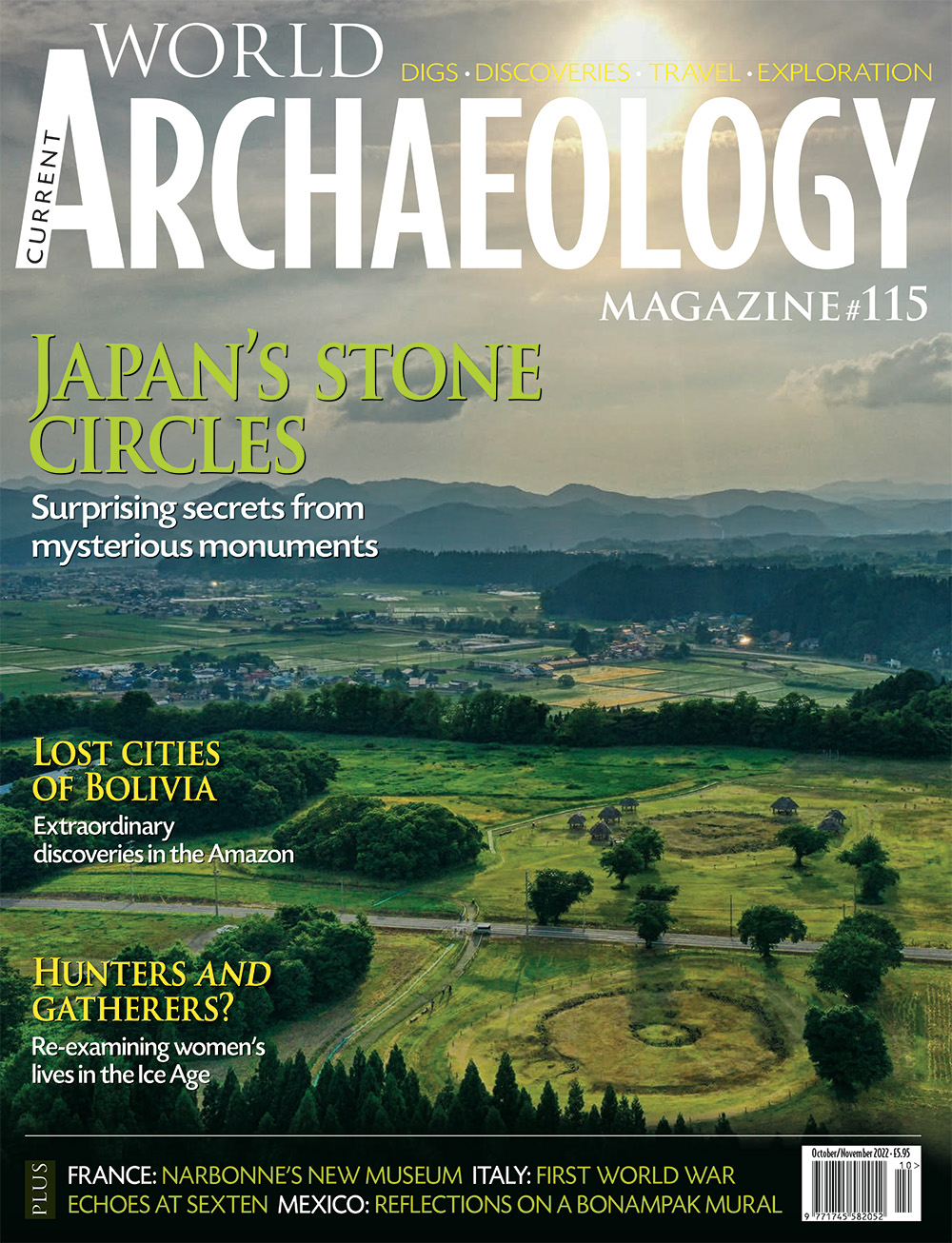The stone circles of Japan are enigmatic monuments. These structures were created by Jomon hunter-gatherers, mostly from roughly 2500-300 BC, and can be associated with burials, seasonal ceremonies, and solar alignments. Such preoccupations are far from being restricted to Jomon Japan, with study of these circles proving influential when it came to early 20th-century attempts to understand Stonehenge. In our cover feature, we take a detailed look at some of the Jomon stone circles, examining both the monuments themselves, and wider activity in the period.
When it comes to the Bolivian Amazon, recent research has revealed that there was far more activity under way in the region than once suspected. Although traces of activity in the form of enigmatic earth mounds, colourful pottery, and raised fields have long been known, these were once associated with a doomed attempt to settle the area by people from urban societies in the Andes. Now LiDAR survey has revealed the remains of forgotten cities that once thrived in Amazonia.
Recent debate has raised questions about the roles of women in the Ice Age. While scholarship once focused on Palaeolithic women undertaking domestic work and nursing children, there is archaeological evidence for female artists, while burial rites suggest the existence of women of status. There are also grounds to believe that Ice Age women could be skilled hunters and toolmakers.
In our travel section, Roger Wilson casts his eye over the new museum at Narbonne. What do the objects on display tell us about Rome’s first colony beyond Italian soil? Meanwhile, Richard Hodges has been visiting Sexten, where the alpine scenery still bears the traces of fighting in the First World War.
Finally, I’m delighted to introduce a new column by Rubina Raja and Søren Sindbæk, which takes a look at the archaeology of cities and settlement around the world.

